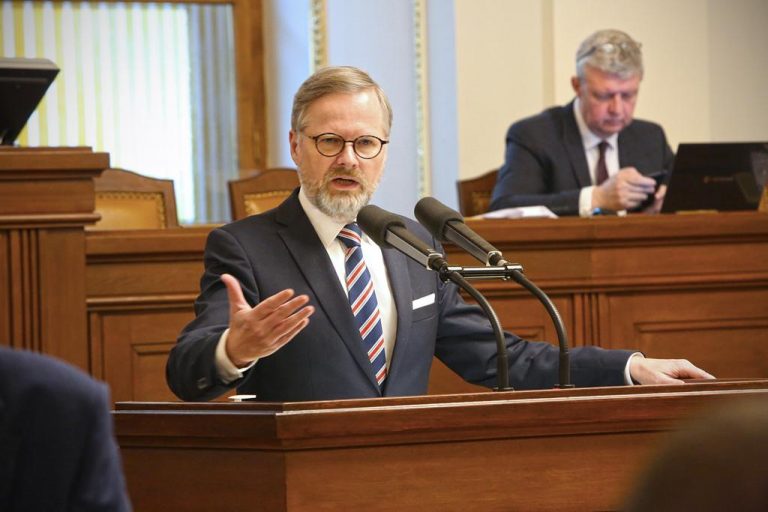Fiala said he wants a pension reform that would enjoy broad consensus and would therefore remain in place long-term. Photo credit: vlada.cz.
Prague, Nov 10 (CTK) – PM Petr Fiala (ODS) today ruled out any increase in the retirement age in the Czech Republic under his government, and told the Blesk.cz server that his cabinet instead wants to propose a pension reform based on the broadest possible consensus.
“It is necessary for people under 40 to have the chance of a decent pension,” Fiala said.
He said the cabinet will not consider an increase in the retirement age at all, because the relevant law obliges governments to compare the current life expectancy with the pension age once in five years, which will not fall during the current election term.
On Wednesday, Finance Minister Zbynek Stanjura (ODS) said that, regarding the pension system, the Czech Republic cannot avoid a debate on raising the retirement age. Stanjura also emphasised the need for the cabinet to reach consensus on the issue with at least a part of the opposition, in order to avoid the situation that occurred ten years ago, when an incoming government scrapped the draft pension reform of the previous one.
Fiala said today that he hoped for agreement on pension reform that would enjoy broad consensus and would therefore remain in place long-term.
According to Stanjura, the cabinet will present a package of measures to reduce the structural deficit by 2024 in the first half of next year, based on proposals submitted to the cabinet by the advisory National Economic Council (NERV).
Stanjura said it would be necessary to change some parameters of the pension system and cancel some tax exemptions, but he would not raise income tax for individuals. Fiala shares this opinion.
Czech society has been ageing, with the number of senior citizens rising. At present, people over 65 make up one-fifth of the Czech population. The retirement age has been rising annually, by two months for men and four months for women each year. Men now retire at the age of almost 64, and women earlier, depending on the number of children they have raised.
In the election term before the last one, the cabinet set the retirement age limit at 65, which will be reached in the mid-2030s. Experts and international organisations recommend that the Czech Republic should continue steadily raising the retirement age even after that, conditional on rising life expectancy, to make its pension system sustainable.
The Labor and Social Affairs Ministry is obliged to prepare a report on the development of the pension system and life expectancy once every five years. Based on this, the government may propose a change in the retirement age such that people spend about one quarter of their life in pension age.
Life expectancy dropped in the Czech Republic in the past two years due to the COVID-19 epidemic, returning to the level from over ten years ago. According to statistical data, life expectancy dropped by 1.2 years for men, to 74.1, and by 0.9 years for women, to 80.5.
Stanjura also called a debate on the introduction of tuition fees for university studies “a blind alley.”
Asked about the same issue, Fiala today avoided answering directly, saying that education is one of his cabinet’s priorities and that his cabinet has added some CZK 17 billion in support of schools of all levels since its appointment last December.
“The debates on tuition fees flare up repeatedly. Let’s discuss what to do in the educational sector to improve its work,” Fiala said.








